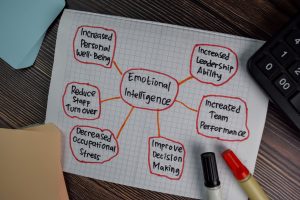Emotional resilience is a multifaceted construct that refers to an individual’s ability to adapt to stress, adversity, and trauma. It encompasses a range of emotional and psychological skills that enable a person to bounce back from difficult experiences and maintain a sense of well-being. At its core, emotional resilience is not merely about enduring hardship; it involves a proactive approach to managing one’s emotions and thoughts in the face of challenges.
This capacity is influenced by various factors, including genetics, upbringing, and life experiences. Understanding emotional resilience requires an exploration of how these elements interact to shape an individual’s response to adversity. For instance, a person who has faced significant challenges in their early life may develop coping mechanisms that serve them well in adulthood, while another individual may struggle to navigate similar situations due to a lack of supportive experiences.
Moreover, emotional resilience is not a static trait but rather a dynamic process that can be cultivated over time. Research in neuroscience has shown that the brain is capable of change and adaptation, a phenomenon known as neuroplasticity. This means that individuals can develop new pathways and strategies for coping with stressors, thereby enhancing their emotional resilience.
The ability to reframe negative experiences, maintain a sense of hope, and engage in problem-solving are all integral components of this resilience. By understanding the underlying mechanisms of emotional resilience, individuals can begin to recognise their own strengths and weaknesses, paving the way for personal growth and transformation. This understanding serves as a foundation for building resilience skills that can be applied in various aspects of life, from personal relationships to professional environments.
Summary
- Emotional resilience is the ability to adapt and bounce back from adversity and stress.
- Building emotional resilience skills involves developing self-awareness, self-regulation, and effective coping strategies.
- Coping with setbacks and challenges requires a growth mindset, problem-solving skills, and seeking support from others.
- Developing a positive mindset and self-compassion involves practicing gratitude, self-care, and challenging negative thought patterns.
- Nurturing emotional resilience in the workplace involves promoting a supportive and inclusive culture, providing resources for mental health, and offering training on stress management.
- Seeking professional support for emotional resilience may include therapy, coaching, or workshops to enhance emotional intelligence and coping skills.
Building Emotional Resilience Skills
To cultivate emotional resilience, one must actively engage in developing specific skills that enhance one’s ability to cope with life’s challenges. These skills include emotional regulation, cognitive flexibility, and effective communication. Emotional regulation involves recognising and managing one’s emotions in a healthy manner, allowing individuals to respond to stressors without becoming overwhelmed.
Techniques such as mindfulness meditation and deep-breathing exercises can be instrumental in fostering this skill. By practising mindfulness, individuals learn to observe their thoughts and feelings without judgment, creating space for more thoughtful responses rather than impulsive reactions. This practice not only helps in managing immediate stress but also contributes to long-term emotional well-being.
Cognitive flexibility, on the other hand, refers to the ability to adapt one’s thinking in response to changing circumstances. It involves viewing situations from multiple perspectives and being open to new ideas or solutions. Developing cognitive flexibility can be achieved through various strategies, such as engaging in creative problem-solving exercises or challenging one’s own assumptions about a situation.
By fostering an adaptable mindset, individuals can navigate obstacles more effectively and reduce feelings of helplessness when faced with adversity. Additionally, effective communication plays a crucial role in building emotional resilience. Being able to express one’s thoughts and feelings clearly fosters stronger relationships and creates a support network that can be invaluable during tough times.
By honing these skills, individuals can significantly enhance their emotional resilience and better equip themselves to handle life’s inevitable challenges.
Coping with Setbacks and Challenges
Setbacks are an unavoidable part of life, and how one copes with these challenges can significantly influence overall emotional resilience. When faced with adversity, it is essential to acknowledge the feelings that arise rather than suppressing them. This acknowledgment allows individuals to process their emotions fully, which is crucial for healing and moving forward.
For instance, experiencing disappointment or failure can evoke feelings of sadness or frustration; however, recognising these emotions as valid responses can facilitate a healthier coping process. Engaging in reflective practices such as journaling or talking with trusted friends can provide an outlet for these emotions, enabling individuals to gain perspective on their experiences. Furthermore, developing a proactive approach to setbacks can transform them into opportunities for growth.
Instead of viewing challenges as insurmountable obstacles, resilient individuals often reframe them as learning experiences that contribute to personal development. This shift in perspective can be cultivated through practices such as goal-setting and self-reflection. By setting realistic goals following a setback, individuals can create a roadmap for recovery that fosters motivation and a sense of purpose.
Additionally, reflecting on past challenges and identifying the lessons learned can reinforce the belief that one is capable of overcoming difficulties. This process not only enhances emotional resilience but also instils a sense of agency and control over one’s life circumstances.
Developing Positive Mindset and Self-Compassion
A positive mindset is integral to emotional resilience, as it shapes how individuals perceive themselves and their circumstances. Cultivating optimism involves consciously challenging negative thought patterns and replacing them with more constructive beliefs. This practice can be supported by techniques such as cognitive restructuring, where individuals identify irrational thoughts and reframe them into more balanced perspectives.
For example, instead of thinking “I always fail,” one might reframe this thought as “I have faced challenges before and learned from them.” This shift not only reduces feelings of inadequacy but also fosters a greater sense of self-efficacy—the belief in one’s ability to succeed despite difficulties. Self-compassion is another vital component of developing emotional resilience. It involves treating oneself with kindness and understanding during times of struggle rather than resorting to self-criticism or harsh judgment.
Research has shown that self-compassionate individuals tend to experience lower levels of anxiety and depression while exhibiting greater emotional resilience. Practising self-compassion can be achieved through mindfulness techniques that encourage individuals to acknowledge their suffering without judgement. Additionally, engaging in positive self-talk and affirmations can reinforce a compassionate inner dialogue.
By nurturing both a positive mindset and self-compassion, individuals create a supportive internal environment that bolsters their ability to navigate life’s challenges with grace and resilience.
Nurturing Emotional Resilience in the Workplace
The workplace presents unique challenges that can significantly impact emotional resilience. High-pressure environments often lead to stress and burnout if not managed effectively. Therefore, fostering emotional resilience within organisational settings is essential for both employee well-being and overall productivity.
One effective strategy is promoting a culture of open communication where employees feel safe expressing their concerns and seeking support from colleagues or supervisors. Encouraging regular check-ins and feedback sessions can help create an environment where individuals feel valued and understood, ultimately enhancing their emotional resilience. Moreover, organisations can implement training programmes focused on developing resilience skills among employees.
Workshops on stress management techniques, mindfulness practices, and effective communication can equip staff with the tools they need to cope with workplace challenges more effectively. Additionally, promoting work-life balance through flexible working arrangements or wellness initiatives can significantly contribute to employees’ emotional well-being. By prioritising emotional resilience within the workplace culture, organisations not only support their employees’ mental health but also foster a more engaged and productive workforce.
Seeking Professional Support for Emotional Resilience
While many individuals can cultivate emotional resilience through self-help strategies, there are times when professional support becomes necessary for deeper healing and growth. Mental health professionals such as psychologists or counsellors are trained to help individuals navigate complex emotions and develop effective coping strategies tailored to their unique circumstances. Seeking therapy can provide a safe space for individuals to explore their feelings without fear of judgement while gaining insights into their behavioural patterns and thought processes.
This professional guidance can be particularly beneficial during periods of significant life transitions or after experiencing trauma. Additionally, support groups offer another avenue for fostering emotional resilience through shared experiences. Connecting with others who have faced similar challenges can create a sense of community and belonging that reinforces one’s ability to cope with adversity.
These groups often provide valuable resources and coping strategies while fostering an environment of empathy and understanding. Ultimately, seeking professional support is not a sign of weakness but rather an empowering step towards enhancing one’s emotional resilience and overall mental health. By recognising when additional help is needed, individuals can take proactive measures towards personal growth and transformation in their lives.
For those interested in enhancing their emotional resilience to achieve sustainable success, it is beneficial to explore related concepts such as the integration of healthy habits into one’s lifestyle. An insightful article that complements this topic is How Embracing Healthy Habits on the Weekend Will Set You Up for Success During the Work Week. This piece delves into the neuroscience behind forming beneficial routines that not only improve personal well-being but also enhance professional performance, thereby contributing to long-term success and resilience.





